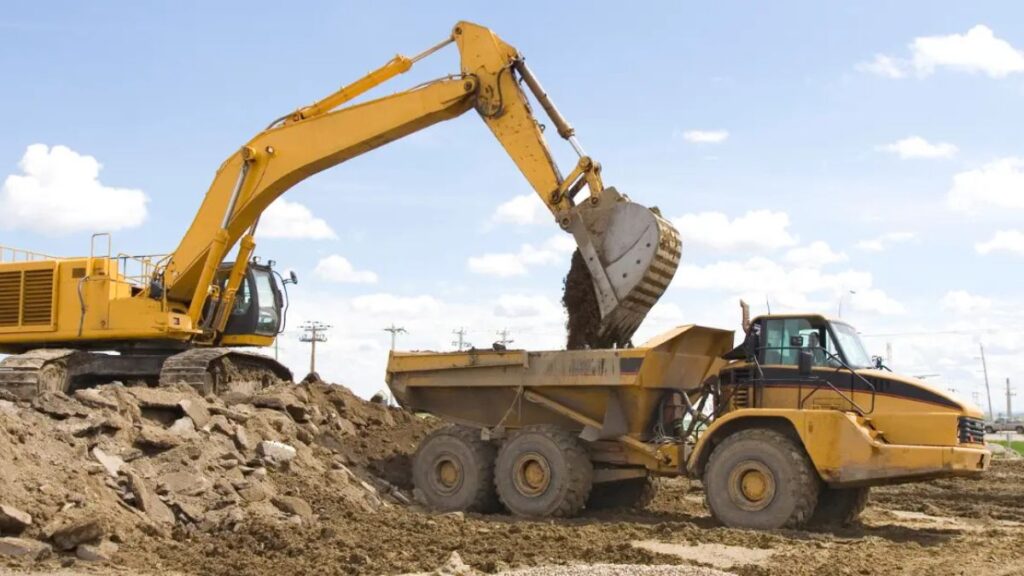In the heavy‑haul and construction industries, the movement of bulk materials like dirt, gravel, demolition debris, and aggregates is a major logistical challenge. Enter the dump truck broker: a specialist who bridges the gap between clients needing hauling services and truck operators capable of performing them. In this article, we’ll explore who a dump truck broker is, how they add value, how their business model works, and what you should look for if you engage one.
What is a Dump Truck Broker?
A dump truck broker acts as an intermediary between parties who need haulage services (for example, contractors, site developers, aggregate suppliers) and parties who supply the hauling capacity (owner‑operators and trucking fleets with dump trucks). The broker’s job is to match the right truck, with the right equipment and capacity, to the right job at the right time.
Specifically, a dump truck broker typically:
- Sources jobs/projects needing dump truck services, often through load‑boards, job leads or direct relationships.
- Maintains a network of truck owners/operators and understands their capacity, equipment type (e.g., end‑dump, belly dump, tri‑axle) and availability.
- Coordinates logistics: which truck will haul which material, from where to where, when. They negotiate schedule, rate, and mode of operation.
- Handles necessary documentation and compliance: insurance, permits, job specs, tickets, proof of delivery.
- Facilitates payment flows: ensuring the client is billed and the truck operator is paid, sometimes managing the margin or commission.
In simple terms: if you need bulk hauling but don’t operate the trucks yourself (or you have capacity but lack consistent jobs), a dump truck broker can be a useful partner.
Why Businesses Use a Dump Truck Broker
Utilizing a dump truck broker offers several benefits for both clients (those needing hauling) and carriers (truck owners). Here are key advantages:
For Clients / Haulers needing trucks
- Access to a broad network of trucks: Instead of sourcing individual trucks one‑by‑one, you tap into a broker’s roster of available equipment and operators.
- Flexibility & scalability: Projects often fluctuate. A broker can quickly scale up or down available trucks depending on job demands.
- Time and resource savings: The burden of vetting, negotiating, scheduling and compliance is shifted to the broker, freeing you to focus on your core business.
- Better utilization for truck owners: For operators, if you don’t have constant direct contracts, a broker can fill your schedule, reduce idle time and help you get more consistent loads.
For Truck Operators / Owners
- Steady stream of jobs: Instead of marketing yourself to every contractor site, you plug into the broker’s flow of work.
- Simplified admin: The broker handles much of the billing, client relations, and documentation so you can concentrate on hauling.
- Potential for quicker payment: Some brokers provide expedited payment terms (weekly, fast pay) compared to waiting for the client to settle.
How the Dump Truck Broker Business Model Works
Understanding the mechanics of how a dump truck broker operates is crucial. Here’s a breakdown of the flow:
- Lead / Project Acquisition
The broker secures a project requiring hauling (say, 500 cubic yards of top‑soil from Site A to Site B). They negotiate with the client a rate, scope, schedule, material type, hauling frequency, trucks needed. - Carrier Network Matching
The broker identifies which truck owner(s) in their network have appropriate equipment (e.g., end‑dump, 10‑yd capacity), are available, and can meet schedule & site requirements. - Rate Negotiation & Agreement
The broker sets a rate with the client and agrees a lower rate (or pay‑out) with the carrier/truck operator. The difference is the broker’s margin. It may be structured as a flat fee, percentage, or markup. - Logistics & Dispatch
The broker oversees scheduling, load tickets, arrival/departure times, possibly route optimization, hauling logistics, load count, site constraints, and submits documentation. - Invoicing & Payment Flow
The broker ensures the client is invoiced for the hauling service, the operator is paid (either via the broker or directly if arrangement allows), and the broker retains their margin. The broker may also handle disputes, delays, site issues, etc. - Tracking & Reporting
To maintain efficiency and credibility, brokers often use load‑boards, dispatch software, GPS/telematics, digital load slips, and real‑time updates. For example, platforms supporting dump truck brokers emphasise “Manage All Your Jobs … Go Paperless” features.
What to Look for When Choosing a Dump Truck Broker
If you are a contractor needing haulage or a truck operator considering partnering with a broker, it’s wise to vet the broker carefully. Here are some key considerations:
- Reputation and trustworthiness: Check reviews, references, prior job performance. Since many aspects (loads, payments, scheduling) are reliant on the broker, you want reliability.
- Clear fee/commission structure: Understand how the broker makes money, whether the payout to you (as truck operator) is clearly defined, and that there are no hidden deductions. One operator on Reddit commented:
- Strong network & capacity: A broker who consistently has work or access to a broad network is preferable to one with sporadic load availability.
- Technology & process transparency: Are they using digital load slips, real‑time updates, dispatch portals? These help ensure fewer surprises.
- Payment terms: How quickly will you be paid as a truck operator? Are there delays? Will you be paid weekly or after 45‑60 days?
- Compliance and documentation: Make sure they verify carriers’ insurance, permits, DOT compliance, and track load tickets properly.
- Contract clarity: Ensure any agreement is written and outlines your responsibilities, payment terms, dispute resolution, deduction policy, etc.
Common Challenges and Risk Factors
While partnering with a dump truck broker offers advantages, there are risks and common issues to be aware of:
- Demand fluctuations: Construction and hauling work is often seasonal or weather‑dependent. Brokers must manage peaks and troughs.
- Carrier reliability: Even if the broker secures the job, if truck operators show up late, with improper equipment, or without tickets, it can lead to disputes.
- Rate pressure: Brokers negotiate many jobs; market rates may fall and margins for operators can shrink.
- Dispute over deductions/fees: Some operators raise concern over brokers making post‑job deductions or unclear fee structures.
- Compliance/regulation risk: Improper insurance or non‑compliant trucks can expose the broker—and indirectly the carrier or client—to liability.
- Cash‑flow risk for operators: If the broker pays out to you only after the client pays, then you may experience delays unless the broker offers quick‑pay options.
Best Practices for Working with a Dump Truck Broker
Whether you’re a truck operator or a hauling client, here are some strategies to make the broker relationship smoother and more profitable:
- Maintain clear communication: From job specs to load tickets, schedule changes, site constraints—ensure you and the broker are aligned.
- Get all expectations in writing: Type of material, quantity, rate, payment terms, arrival/departure times, truck type, site access.
- Track your loads and documentation: Keep load tickets, signed delivery slips, photos if needed. This supports invoicing and avoids disputes.
- Monitor your payment schedule: If you are an operator, note how long after “load complete” you are paid; negotiate quicker payment if extended.
- Review the broker’s network and history: Make sure they have consistent volume and are known in the industry.
- Be flexible but professional: Some jobs may require shifts, off‑hours or special equipment; showcasing flexibility helps build a solid relationship with the broker.
- Build your own reputation: As a truck operator, having good performance, on‑time delivery, clean equipment helps you stand out in the broker’s network.
- Choose the right broker model: Some brokers provide just job leads; others provide full dispatching, invoicing, payment control. Understand what you’re getting.
Future Trends in Dump Truck Brokerage
The world of hauling and logistics is shifting fast, and dump truck brokers will need to adapt. Some emerging trends:
- Digital platforms and load boards: The use of online marketplaces connecting clients, brokers and carriers is increasing. Brokers leveraging these platforms gain competitive advantage.
- Telematics and real‑time tracking: Trucks with GPS, load tracking, mobile logging of tickets provide more transparency and efficiency.
- On‑demand and scalable model: As construction moves faster and demands shift quickly, brokers must offer rapid access to capacity.
- Sustainability and material traceability: With increasing focus on regulated materials, waste hauling, recycling, brokers that provide compliant, trackable service will stand out.
- Payment innovation: Quick‑pay and faster settlement for truck operators will become a differentiator for brokers.
Conclusion
A dump truck broker is an important player in the hauling logistics chain—connecting those who need materials moved with those who can move them. For construction contractors, aggregate suppliers or site managers, utilising a good dump truck broker can offer access to capacity, flexibility, time savings and risk mitigation. For truck operators and owner‑drivers, partnering with a broker can mean more consistent work, simplified paperwork and potentially faster payment.
That said, choosing the right broker matters. Clear terms, transparency, reliable payment, strong network and modern tools will separate the effective brokers from the mediocre. With the construction and hauling industry evolving, brokers who embrace technology, compliance and strong relationships will thrive—and so will the carriers and clients who partner with them.
Whether you’re seeking hauling capacity or trying to secure more loads for your fleet, working with a reputable dump truck broker can be a game‑changer.







